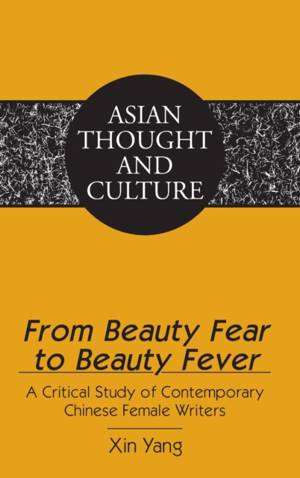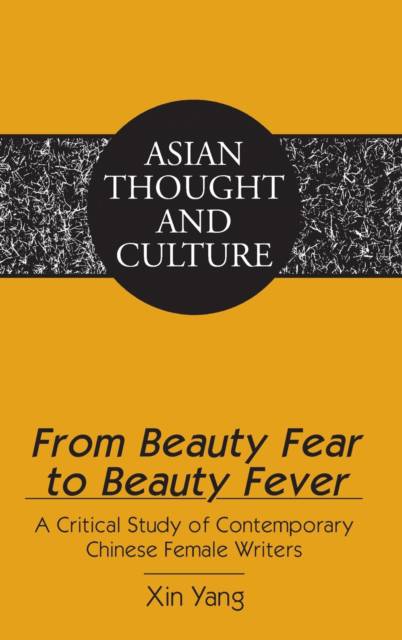
- Retrait gratuit dans votre magasin Club
- 7.000.000 titres dans notre catalogue
- Payer en toute sécurité
- Toujours un magasin près de chez vous
- Retrait gratuit dans votre magasin Club
- 7.000.0000 titres dans notre catalogue
- Payer en toute sécurité
- Toujours un magasin près de chez vous
137,95 €
+ 275 points
Description
From Beauty Fear to Beauty Fever: A Critical Study of Contemporary Chinese Female Writers looks at a glamorous literary and cultural moment in China at the turn of the twenty-first century, namely that of the high-profile female writers born in the 1970s. Dubbed as beauty writers, they brought to light a series of literary, cultural, and social issues at an important moment of institutional and ideological transformation, when China was more actively participating in the global market economy. The discourse of beauty writers is closely related to the changing ideology from beauty fear to beauty fever. Beauty fear resulted from the revolutionary ambition of denouncing the old institutionalized ideologies and embracing gender equality. Beauty fever was driven by commercialization in the mid- and late 1990s, when globalization became the new social reality and broke the boundaries of world/China, official/folk, and elite/mass. After years of revolutionary policies of gender erasure, beauty fever was the product of the intertwined narratives of resistance politics, feminism, capitalism, consumerism, and the postmodern ludic carnival.
From Beauty Fear to Beauty Fever: A Critical Study of Contemporary Chinese Female Writers takes an interdisciplinary approach and reads works of female writers born in the 1970s as both literary and social texts. Engaging in a literary and cultural analysis to scrutinize the interface between fiction, nonfiction, high culture, and low culture, this book explores the role that femininity plays in the reconfiguration of writing, and unravels the politics of gender, class, body, and technology in literary engagement in the post-revolution era.
From Beauty Fear to Beauty Fever: A Critical Study of Contemporary Chinese Female Writers takes an interdisciplinary approach and reads works of female writers born in the 1970s as both literary and social texts. Engaging in a literary and cultural analysis to scrutinize the interface between fiction, nonfiction, high culture, and low culture, this book explores the role that femininity plays in the reconfiguration of writing, and unravels the politics of gender, class, body, and technology in literary engagement in the post-revolution era.
Spécifications
Parties prenantes
- Auteur(s) :
- Editeur:
Contenu
- Nombre de pages :
- 134
- Langue:
- Anglais
- Collection :
- Tome:
- n° 67
Caractéristiques
- EAN:
- 9781433111310
- Date de parution :
- 31-01-11
- Format:
- Livre relié
- Format numérique:
- Genaaid
- Dimensions :
- 150 mm x 226 mm
- Poids :
- 317 g

Les avis
Nous publions uniquement les avis qui respectent les conditions requises. Consultez nos conditions pour les avis.






